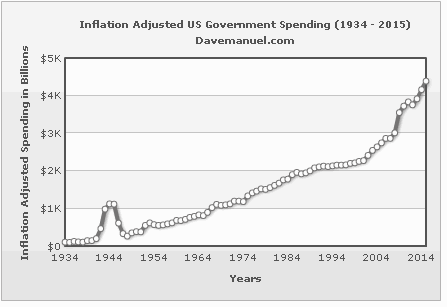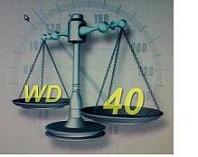You guys know how much talk there is about high taxes and certain parties talking about lowering them because it would supposedly create more jobs or because high taxes are immoral or whatever. Interestingly, I just found out something amazing from the tax history of the united states.
Today, the maximum income tax rate is 39% if you earn more than 440k.
In 1962 income tax rate could reach 91% if you earned more than 3million in 2013 dollars.
and I don't think anyone thinks the 1960's was a bad time. Income inequality in the U.S was pretty low until 1981 when Reagan came in and drastically reduced them. Inequality has risen ever since and then people complain about CEO's making billions. No wonder they are making so much while everyone else is so poor. And no wonder highways were so good back then... the government had the revenue to create them, while today the government can barely fix them. I know this is a controversial subject and very politicized, but the reality is that people forget history so fast. Who cares about political ideology? Don't we want to live as good as those people who lived the 60's?
Don't believe me? Look at this PDF in the attachment. History of tax rates in "2013 dollars" (it means, adjusted for inflation when looking at the salary level).
I would like to know what are your thoughts on this.
You think you are paying high taxes? Think again...
You think you are paying high taxes? Think again...
- Attachments
-
 Federal Individual Income Tax Rates History.pdf
Federal Individual Income Tax Rates History.pdf- (172.46 KiB) Downloaded 697 times
-

CommanderOtto - SWBF2 Admin
- Posts: 2572
- Joined: Wed Jun 13, 2012 10:30 pm
- Location: A kitchen
Re: You think you are paying high taxes? Think again...
Income inequality is a bit of a misnomer.
I do not like the Democrats' view of it, their plan is to take from the rich and make them poor (not give to the poor, if they fund the poor they won't have a big voter base anymore).
It is not the government's job to make sure everybody makes a certain amount of money aside for ensuring that companies are not paying unlivable wages.
If you want to earn more than you have to make yourself more valuable. It's been that way for centuries.
Income inequality is code for: some people are doing well, some are not. We can't have that apparently, so we need to stop those people from doing well.
I do not like the Democrats' view of it, their plan is to take from the rich and make them poor (not give to the poor, if they fund the poor they won't have a big voter base anymore).
It is not the government's job to make sure everybody makes a certain amount of money aside for ensuring that companies are not paying unlivable wages.
If you want to earn more than you have to make yourself more valuable. It's been that way for centuries.
Income inequality is code for: some people are doing well, some are not. We can't have that apparently, so we need to stop those people from doing well.
-

(SWGO)DesertEagle - Community Member
- Posts: 438
- Joined: Wed Jan 02, 2013 4:37 am
- Location: In the land of irony
Re: You think you are paying high taxes? Think again...
I found a graph on Wikipedia (and graphs are good)! It's important to note that the first spike is WWI, the second spike (red) is the great depression, and the third spike (blue/red) is WWII. Also, notice that before 1913 there was practically no tax (it's a wonder they ever survived for over 130 without the government's "help").
If we went back to the tax-rates you were talking about, then we'd be in full wartime government operation! Also, second/third/fourth graphs are interesting (Note: the second is a % of gdp, the third is actual $ amounts, and the fourth is about spending vs revenue). Basically, the tax rate did not have an affect on revenue as a percent of gdp. Yet GDP has increased since the 60's resulting in over 5x the adjusted amount of revenue. However, the government has no concern over revenue (see debt)... It's all about spending: The final 2 graphs really hurts an argument about quality of roads and such, as spending has actually drastically increased since the 60's. I'm kind of skipping over the 'inequality' part of this discussion because it's so subjective as to its actual impact on society(ie. it's not representative of the poor's ability to live, upward mobility, and the driving force of the economy - to make a profit). Also, most 'anti-poverty' spending began after the 60's. A good read: http://www.heritage.org/research/factsheets/2012/09/defending-the-dream-why-income-ineqality-does-not-threaten-opportunity Lastly, the government absolutely loves the idea of making people dependent on it...





If we went back to the tax-rates you were talking about, then we'd be in full wartime government operation! Also, second/third/fourth graphs are interesting (Note: the second is a % of gdp, the third is actual $ amounts, and the fourth is about spending vs revenue). Basically, the tax rate did not have an affect on revenue as a percent of gdp. Yet GDP has increased since the 60's resulting in over 5x the adjusted amount of revenue. However, the government has no concern over revenue (see debt)... It's all about spending: The final 2 graphs really hurts an argument about quality of roads and such, as spending has actually drastically increased since the 60's. I'm kind of skipping over the 'inequality' part of this discussion because it's so subjective as to its actual impact on society(ie. it's not representative of the poor's ability to live, upward mobility, and the driving force of the economy - to make a profit). Also, most 'anti-poverty' spending began after the 60's. A good read: http://www.heritage.org/research/factsheets/2012/09/defending-the-dream-why-income-ineqality-does-not-threaten-opportunity Lastly, the government absolutely loves the idea of making people dependent on it...
Unknown - often misattributed wrote:A democracy cannot exist as a permanent form of government. It can only exist until the majority discovers it can vote itself largess out of the public treasury. After that, the majority always votes for the candidate promising the most benefits with the result the democracy collapses because of the loose fiscal policy ensuing, always to be followed by a dictatorship, then a monarchy.





-

Bryant - SWBF2 Admin
- Posts: 678
- Joined: Fri Nov 13, 2009 12:50 am
- Xfire: ssmgbryant
Re: You think you are paying high taxes? Think again...
(SWGO)DesertEagle wrote:Income inequality is a bit of a misnomer.
I do not like the Democrats' view of it, their plan is to take from the rich and make them poor (not give to the poor, if they fund the poor they won't have a big voter base anymore).
It is not the government's job to make sure everybody makes a certain amount of money aside for ensuring that companies are not paying unlivable wages.
If you want to earn more than you have to make yourself more valuable. It's been that way for centuries.
Income inequality is code for: some people are doing well, some are not. We can't have that apparently, so we need to stop those people from doing well.
The idea is not so simple. Rather than reducing the rich to the poor, as you so aggressively put it, democrats believe that those who are better off should contribute slightly more to society so that the majority of people has the same chance to succeed. By taxing millionaires at 35-39%, the government can better fund schools, hospitals, and programs to help veterans and the disabled. No one can argue that as a semi-civilized community, we all have an obligation to ensure that those at the bottom have enough to live on, have incentive to work hard and move up, and that those who are unable to take care of themselves (i.e. poor children, injured war vets, disabled citizens, etc.) are not relegated to a meager existence because of their bad luck. The people who are taxed at such high rates can hardly be considered poor, as we have something known as tax zoning. All income above the 400K threshold is taxed at a higher rate than income between 50-249K. In this manner, someone earning 10M a year pays 10M-400K = 9.6M*.39 in federal income taxes, plus the marginal tax rates of the first 400K. Regardless, deducting all taxes (including the discounts you get for married joint filing and the average 2 dependants) the person pays a total of about 3.989M in taxes. If some of the income were Capital Gaines, if they donated to charity, etc., this would be even less. So the 10M dollar earner is left with more than 6M dollars with which to live. If you ask me, that's more than enough to "subsist" on and hardly makes him "poor."
Love and Pepsi are the two most important things in life.
-

(SWGO)SirPepsi - Community Member
- Posts: 867
- Joined: Thu Oct 27, 2011 12:53 pm
- Xfire: sirpepsi
Re: You think you are paying high taxes? Think again...
I like the idea of a flat tax of 15%. That way, we could get rid of most of the IRS.
-

WD-40 - SWBF2 Admin
- Posts: 4537
- Joined: Mon May 17, 2010 10:12 pm
- Location: Likely on some crappy Hotel internet connection
- Xfire: faststart0777
Re: You think you are paying high taxes? Think again...
(SWGO)DesertEagle wrote:I do not like the Democrats' view of it, their plan is to take from the rich and make them poor (not give to the poor, if they fund the poor they won't have a big voter base anymore).
This is what is commonly called a "strawman" argument. You are exaggerating a group's belief into something which they do not actually espouse, and is obviously wrong. You then argue against that instead of their actual position.
(SWGO)DesertEagle wrote:It is not the government's job to make sure everybody makes a certain amount of money aside for ensuring that companies are not paying unlivable wages.
Have you considered that some might disagree? I don't see how an ideal government could do anything other than maximizing quality of life for all its citizens. (Quality of life is the important metric here, not wage. Money is simply important because it can be used to improve quality of life - but there are other ways for a government to do so.)
WD-40 wrote:I like the idea of a flat tax of 15%. That way, we could get rid of most of the IRS.
Flat taxes sound "fair," but produce poor results in practice, because the marginal utility of one's income slowly decreases as that income rises. A man who makes $10,000 a year will be crippled by the loss of $1,500. A man who makes $10 million a year may not even notice losing $1.5 million of it.
-

Darth Crater - SWBF2 Admin
- Posts: 1324
- Joined: Wed Aug 19, 2009 2:26 pm
- Xfire: darthcrater1016
Re: You think you are paying high taxes? Think again...
Funny timing for a subject. I was watching You Tube videos of IRS agents coming out and either leaving the IRS, or "retiring" from the IRS by force... all because they inquired about certain tax laws. Apparently, there is no law in the books that legalize paying income taxes. The law on income taxes and collection of said taxes, are for corporations... not individuals. Earned income (work), is not taxable, it was earned through labor. Look it up...quite interesting. The IRS refused to "show" the law that makes it legal to collect income taxes. Refused. Aren't we a nation of laws?
-

11_Panama_ - SWBF2 Admin
- Posts: 2234
- Joined: Sat Dec 31, 2011 1:40 am
- Location: Figment of your imagination
- Xfire: delta11panama
Re: You think you are paying high taxes? Think again...
Darth Crater wrote:(SWGO)DesertEagle wrote:I do not like the Democrats' view of it, their plan is to take from the rich and make them poor (not give to the poor, if they fund the poor they won't have a big voter base anymore).
This is what is commonly called a "strawman" argument. You are exaggerating a group's belief into something which they do not actually espouse, and is obviously wrong. You then argue against that instead of their actual position.(SWGO)DesertEagle wrote:It is not the government's job to make sure everybody makes a certain amount of money aside for ensuring that companies are not paying unlivable wages.
Have you considered that some might disagree? I don't see how an ideal government could do anything other than maximizing quality of life for all its citizens. (Quality of life is the important metric here, not wage. Money is simply important because it can be used to improve quality of life - but there are other ways for a government to do so.)WD-40 wrote:I like the idea of a flat tax of 15%. That way, we could get rid of most of the IRS.
Flat taxes sound "fair," but produce poor results in practice, because the marginal utility of one's income slowly decreases as that income rises. A man who makes $10,000 a year will be crippled by the loss of $1,500. A man who makes $10 million a year may not even notice losing $1.5 million of it.
That's why you exempt low earners from taxes all together. 10k a year is not really enough to live on.
Also, while the democrats do not espouse such beliefs verbally, their actions do. It is nothing but a political move.
Their whole attitude is "tax those greedy rich people," as if that is going to have any effect other than generating voter enthusiasm, removing funds from the pool of investment, and increasing the number of programs they can burn money in but which have little effect. Seriously, if you take all the very richest people and take 100% of their income, you can maybe give everyone a couple thousand each, not really enough to have much of an effect, not these days. However, if you reduce taxes, you allow them to invest their money, which goes into businesses, which pays people wages, which gives people more money to buy things, which increases demand for these things, which incentivizes more production, requiring more wage earners, and so forth.
I do not oppose government programs for the poor, I think they are necessary because people are not doing their charitable jobs. However, I cannot help but notice that pretty much every single one of these programs is causing the government to spend money it doesn't have and is usually muffed badly (Obamacare, social security, etc). I just don't trust the government to do a good job in these kinds of situations, their track record is bad.
Keep in kind, whenever the government spends money, it is spending OUR money. When it spends money it doesn't have, it has to borrow it or print more, which means more inflation and interest, which means higher taxes and less buying power, all of which affects us negatively. In the end, they don't suffer, we do.
-

(SWGO)DesertEagle - Community Member
- Posts: 438
- Joined: Wed Jan 02, 2013 4:37 am
- Location: In the land of irony
Re: You think you are paying high taxes? Think again...
11_Panama_ wrote:Funny timing for a subject. I was watching You Tube videos of IRS agents coming out and either leaving the IRS, or "retiring" from the IRS by force... all because they inquired about certain tax laws. Apparently, there is no law in the books that legalize paying income taxes. The law on income taxes and collection of said taxes, are for corporations... not individuals. Earned income (work), is not taxable, it was earned through labor. Look it up...quite interesting. The IRS refused to "show" the law that makes it legal to collect income taxes. Refused. Aren't we a nation of laws?
I believe there is precedent in the judicial system for forcing the payment of income tax. Also, you could look at the IRS as a big collections agency, one that has way too much power for your own good.

-

(SWGO)DesertEagle - Community Member
- Posts: 438
- Joined: Wed Jan 02, 2013 4:37 am
- Location: In the land of irony
Re: You think you are paying high taxes? Think again...
(SWGO)DesertEagle wrote:That's why you exempt low earners from taxes all together. 10k a year is not really enough to live on..
Then that's not really a flat tax, is it? Just a crude form of graduated tax with only two brackets. And don't stress about the $10k number specifically, it's just an example. Multiply by 3 or 5 and the argument still holds.
(SWGO)DesertEagle wrote:Also, while the democrats do not espouse such beliefs verbally, their actions do. It is nothing but a political move.
Their whole attitude is "tax those greedy rich people," as if that is going to have any effect other than generating voter enthusiasm, removing funds from the pool of investment, and increasing the number of programs they can burn money in but which have little effect.
These two paragraphs seem contradictory, but I'll assume that I'm just misreading you. I don't agree that their actions have resulted in major tax hikes. The effective tax rate paid by the top 1% of Americans is only 23.5%. (source)
(SWGO)DesertEagle wrote:Seriously, if you take all the very richest people and take 100% of their income, you can maybe give everyone a couple thousand each, not really enough to have much of an effect, not these days. However, if you reduce taxes, you allow them to invest their money, which goes into businesses, which pays people wages, which gives people more money to buy things, which increases demand for these things, which incentivizes more production, requiring more wage earners, and so forth.
That's known as "trickle-down economics." Do you have numbers backing up whether it works in practice? I've seen various arguments that it doesn't. For example, the poor may tend to spend 100% of their income each year (which goes into businesses, pays people wages, etc.). However, the rich don't necessarily do the same. For example, if they kept a major chunk of their earnings in a bank, even a fractional-reserve bank, some of that money isn't circulating through the economy.
(SWGO)DesertEagle wrote:I do not oppose government programs for the poor, I think they are necessary because people are not doing their charitable jobs. However, I cannot help but notice that pretty much every single one of these programs is causing the government to spend money it doesn't have and is usually muffed badly (Obamacare, social security, etc). I just don't trust the government to do a good job in these kinds of situations, their track record is bad.
Keep in kind, whenever the government spends money, it is spending OUR money. When it spends money it doesn't have, it has to borrow it or print more, which means more inflation and interest, which means higher taxes and less buying power, all of which affects us negatively. In the end, they don't suffer, we do.
A lot of the contradictory nature of the budget (constant deficit spending, etc) is definitely caused by political conflict. Obamacare is the same way - it's much more complicated than a single-payer system, because they couldn't get the single-payer system through Congress.
Have you heard of the Tragedy of the Commons? It's the reason that the poor aren't handled by charity, or the military by a private defense fund. Basically,the reason we give money to the government is because it will fund things that are most useful to the nation,even if we wouldn't choose to pay for them on our own.
-

Darth Crater - SWBF2 Admin
- Posts: 1324
- Joined: Wed Aug 19, 2009 2:26 pm
- Xfire: darthcrater1016
Return to Non-Game Discussions
Who is online
Users browsing this forum: No registered users and 5 guests
